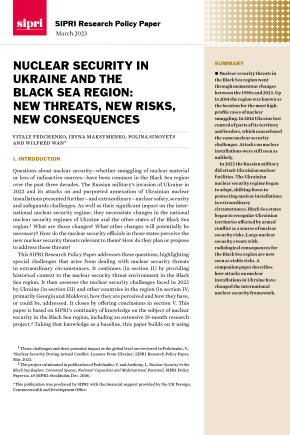Nuclear Security in Ukraine and the Black Sea Region: New Threats, New Risks, New Consequences

Nuclear security threats in the Black Sea region went through momentous changes between the 1990s and 2023. Up to 2014 the region was known as the location for the most high-profile cases of nuclear smuggling. In 2014 Ukraine lost control of parts of its territory and borders, which exacerbated the same nuclear security challenges. Attacks on nuclear installations were still seen as unlikely.
In 2022 the Russian military did attack Ukrainian nuclear facilities. The Ukrainian nuclear security regime began to adapt, shifting focus to protecting nuclear installations in extraordinary circumstances. Black Sea states began to recognize Ukrainian territories affected by armed conflict as a source of nuclear security risks. Large nuclear security events with radiological consequences for the Black Sea region are now seen as viable risks. A companion paper describes how attacks on nuclear installations in Ukraine have changed the international nuclear security framework.
I. Introduction
II. Background on nuclear security in the Black Sea region
III. Nuclear safety and security challenges in Ukraine
IV. Nuclear security in the Black Sea region beyond Ukraine
V. Conclusions


